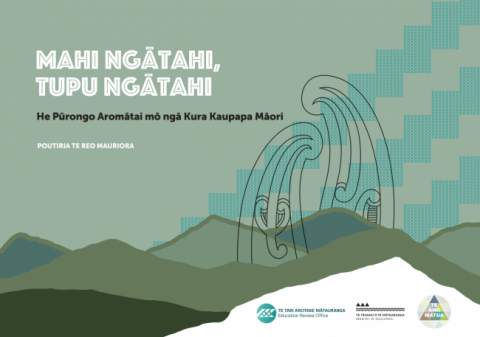Te Whāriki (2017): Awareness Towards Implementation
Published: 12 Dec 2019
ERO’s final report in the Te Whāriki series summarises the findings of previous reports and includes the last two focus areas for the curriculum – how services decide ‘what learning matters here’ and how well they were developing learning-focused partnerships with parents and whānau.
- Audience:
- Parents
- Schools
- Content type:
- Research
- Topics:
- Te Whāriki
- Te Marautanga o Aotearoa
- Teachers | Kaiako


